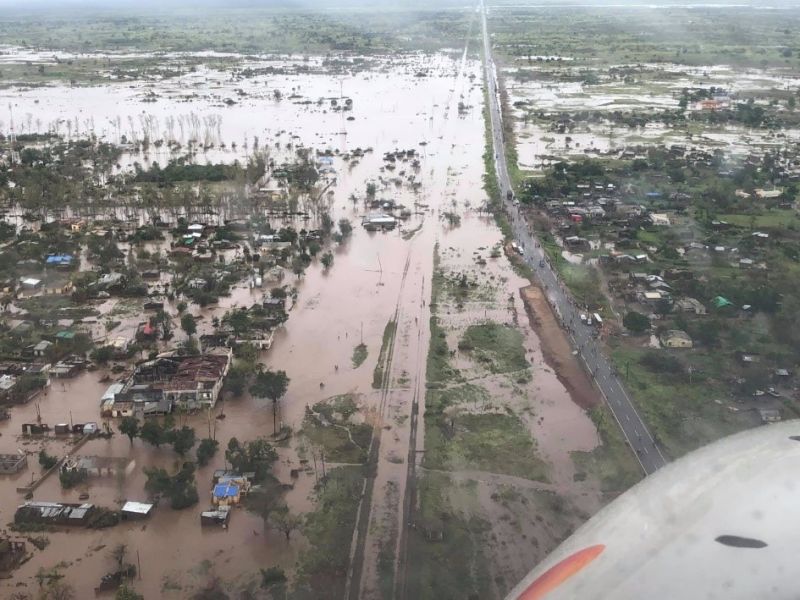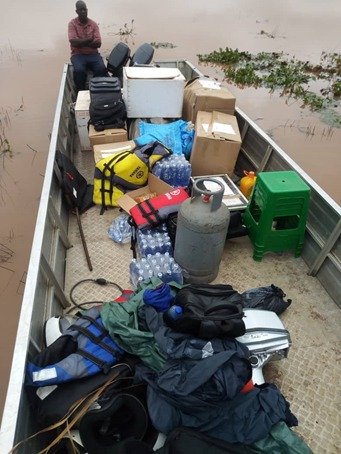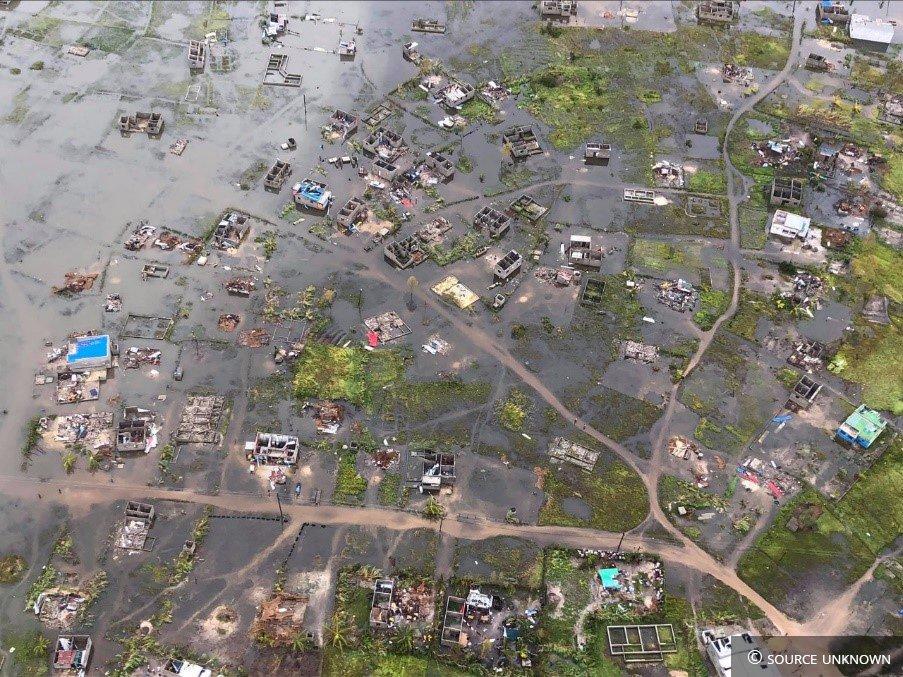MSF Emergency Response: Cyclone Idai
MSF medical teams already working in Mozambique, Malawi and Zimbabwe are responding swiftly after heavy rains and destruction due to Cyclone Idai. Due to the cyclone's impact some of our regular services have been suspended in Mozambique and can confirm that all staff are safe and accounted for.
MSF Southern Africa has dedicated a funding mechanism geared at raising funds for each country's need. Therefore, should you wish to donate towards this emergency, you are able to select which project/country your donation should be directed towards.
Here's an update on the latest developments:
Mozambique: 84 deaths and at least 1,500 injured

Tropical cyclone Idai which hit the coastal town of Beira in Mozambique with winds of up to 200kms an hour and heavy rain on 14 March has wreaked extreme devastation along the central coastline of Sofala, Zambézia and Inhambane provinces. Ninety percent of the area around Beira has been destroyed, main roads leading into the area have been cut off.
There is no power in Beira and surrounding areas, and nearly all communication lines have been destroyed, which is making an assessment of the human toll and scale of disaster extremely difficult. Beira hospital has sustained severe damage to its operating theatre and several of the wards, and all 17 health centres have lost their roofs with additional damage.
To date, 84 deaths and at least 1,500 injured have been reported between Beira, Dondo and Chimoio cities; however a state broadcast earlier today confirms the situation may be even more serious with 1000 dead.
MSF’s medical activities in Beira hospital, health centres and community have stopped completely. After several worrying days, we are happy to report that all MSF staff have been accounted for, despite a few injuries reported.
Following an early assessment today, an MSF emergency team arrives in Beira tomorrow to conduct a wider assessment on the extent of the damage and needs. MSF’s main concern is to ensure continuity of care and referrals at the health centres, while we anticipate that water and hygiene needs will remain high in the coming days.
- Read more about our work in Mozambique
Zimbabwe: Several roads destroyed
Cyclone Idai hit Chimanimani, a small district of approximately 30,000 people in Manicaland province late Friday 15 March, after passing through Mozambique. Several roads leading into Chimanimani have been cut off; the only access into the area is by helicopter.
Airlifts were intended to take place to a nearby stabalisation centre but efforts are being hampered by difficult conditions.
An MSF team has been trying to access Chimanimani with supplies and medical materials, but is unable to access the district due to destroyed bridges and is now providing services at a stabilization center approximately 20 kilometres from Chimanimani.
MSF is focussing on supporting stabalisation centres outside Chimanimani with medical supplies and water and sanitation support.
- Read more about our work in Zimbabwe
Malawi: MSF teams on the ground providing much-needed relief

Extremely heavy rains in lower Shire River districts of Chikwawa and Nsanje, compounded by further rains from last week’s Cyclone Idai has caused severe flooding including in 14 of Nsanje’s 28 districts.
Official figures confirm 56 deaths, 577 injured and 3 missing
Rivers have broken their banks leaving many houses fully submerged and around 11,000 households displaced in Nsanje.
An MSF emergency intervention has been launched with a focus on Makhanga area in the worst affected East Bank of Nsanje, which is only accessible by boat or helicopter.
MSF is also supporting Makhanga health centre with supplies, cleaning, human resources, along with strengthened surveillance and referral systems, along with outreach clinics and health promotion activities in the evacuation centres.
Water and sanitation activities and distributions of non-food item kits are being planned to affected households.
- Read more about our work in Malawi
